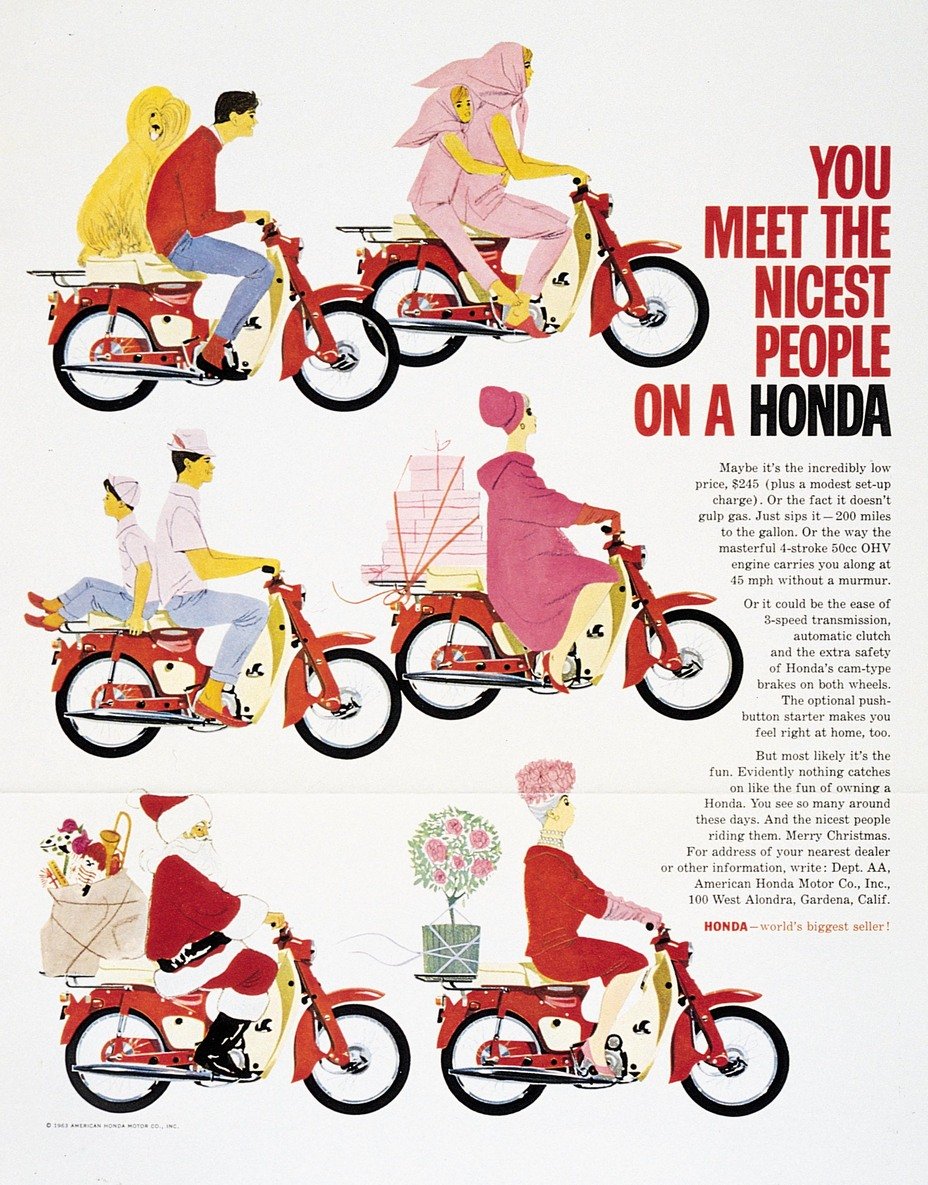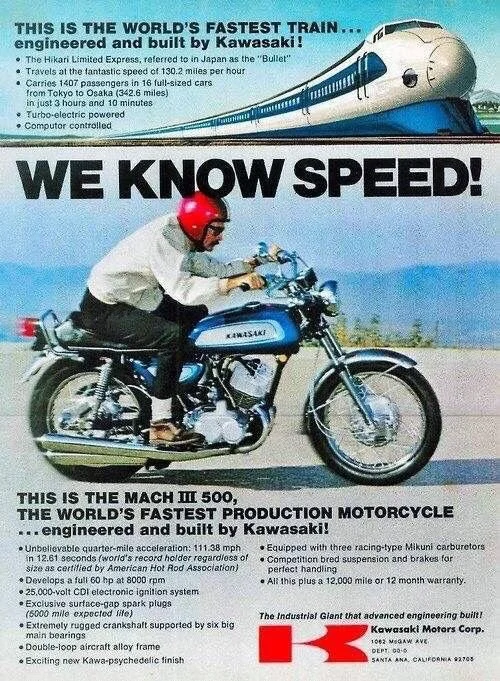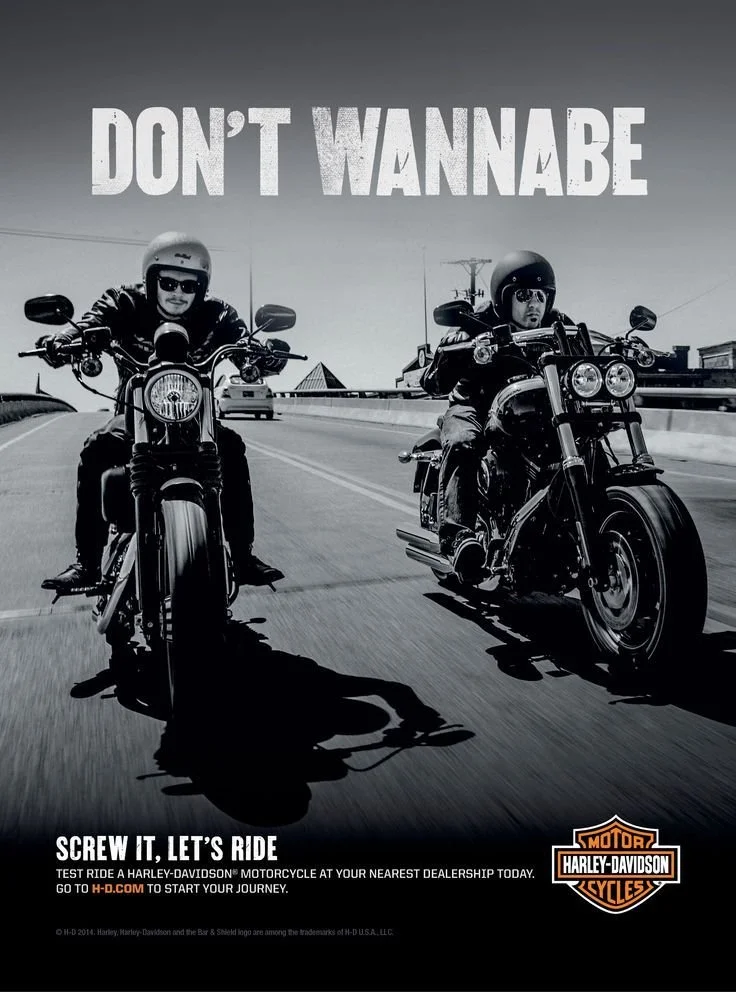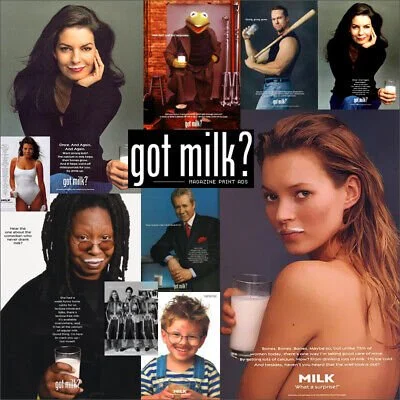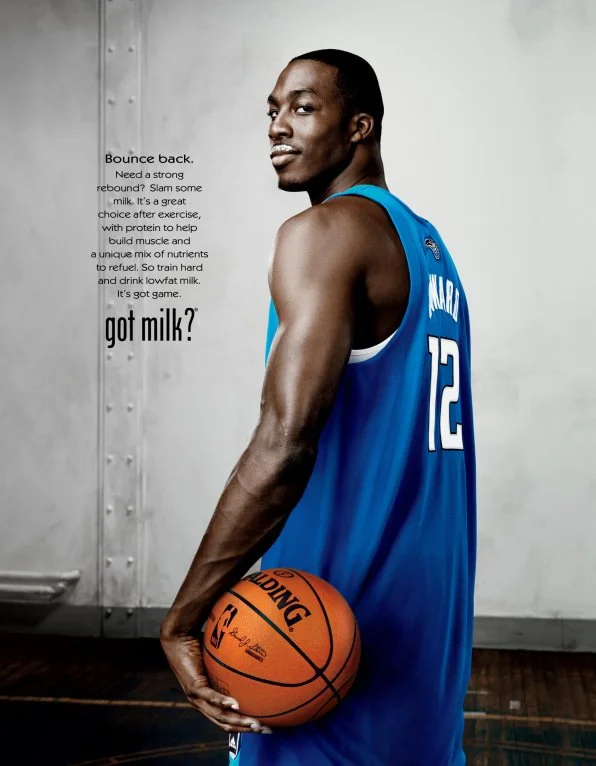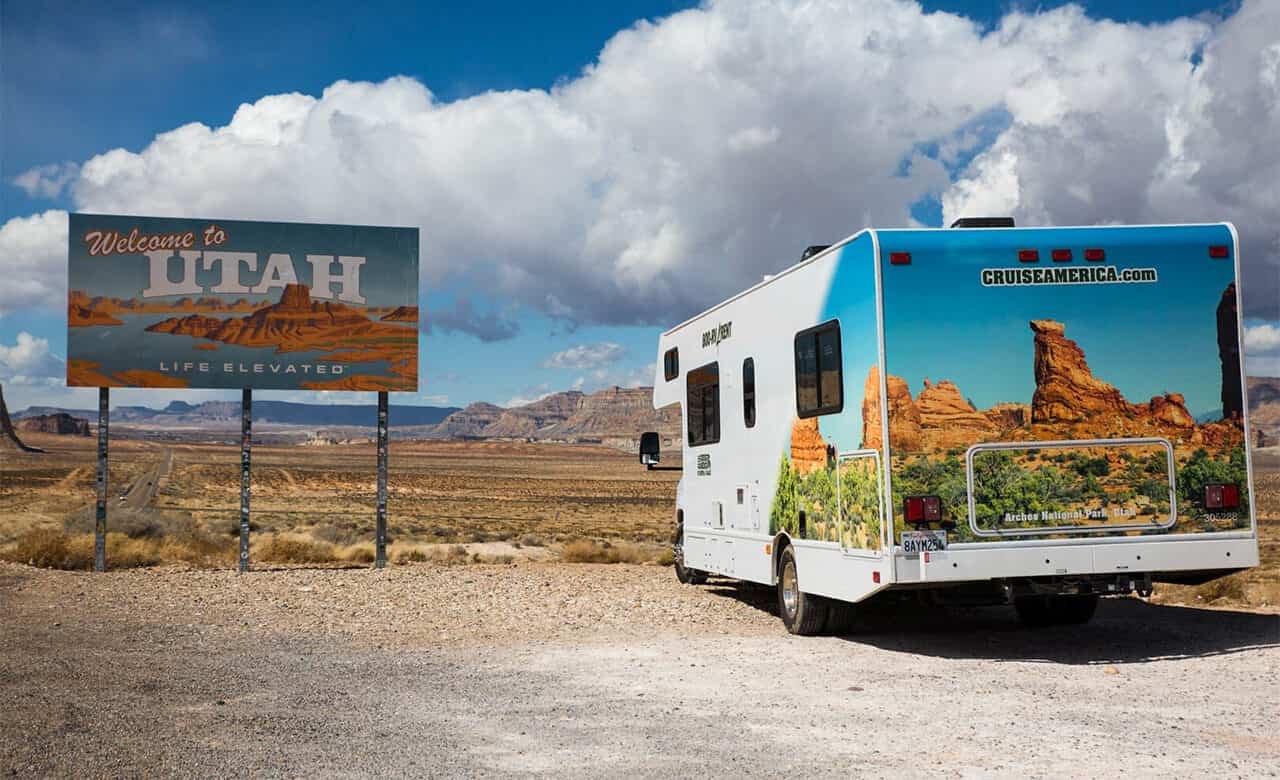PROMOTING MOTORCYCLE RIDING
BACKGROUND
Dr. Dave conducts ongoing research in a variety of industries. A key topic that emerged from discussions with individuals and groups within the motorcycle industry was the continued concern for the future of motorcycling. The average age of an on-road motorcyclist in the U.S. is approximately 50 years (the average age has been increasing since the 1980s). As younger demographics increasingly opt out of driving and riding, instead utilizing alternative methods of transportation (e.g., share economy, ride-hailing services) the average age of motorcycle riders continues to climb.
Though motorcycle manufacturers and industry trade organizations engage in sustained promotional activities (e.g, advertising, demo rides, racing, public relations) a large segment of the population is either uninterested in motorcycling, avoid riding due to the social stigma from family and friends, avoid due to fear and possibility of “death”, or generally are unaware of the benefits. To develop possible new ways to engage and interact with non-motorcyclists, a workshop was conducted with 15 non-motorcyclists. The participants ranged in age from 16 to 55 years, with a mix of males and females.
As the workshop was only four hours, desk and field research was conducted prior to the workshop to provide participants with reference material as stimulus for the exercise. The following brief was provided to participants prior to the workshop:
To better understand how advertising can help address the decreasing interest in motorcycling through a creative thinking workshop. Participants will conceptualize, write, and produce advertisements for a possible solution.
Advertisements was the chosen archetype. It was decided that this type of promotional tool would be fun for participants to create, as well as an excellent communication device for a variety of stakeholders. The goal was the advertisements would drive ongoing discussions, questions, and further speculation.
PRE-WORKSHOP
Workshop participants were provided the following background and context to prepare for the exercise.
The average age of on-road motorcyclists in the U.S. continues to rise. Currently with an average age of approximately 50 years, a growing concern is that the future of on-road motorcycling in the U.S. will continue to accelerate to a small niche activity. The following are several key reasons for lack of participation:
Social stigma of family and friends
Cost of purchase and ownership
Lack of garage or safe area to store
Fear of being injured or dying
Overall lack of awareness
Distracted drivers on smart devices
Challenges of learning to ride and owning a motorcycle:
Time and effort to learn to ride
Local weather conditions for daily usage
Expanding urbanization and lack of safe storage
No friends or family who currently ride
Benefits of riding a motorcycle:
Adventure and new skills; new experiences
Improved focus and concentration
Increased self-confidence
Shorter commute times
Reduced stress
Improved mental health
Lower costs compared to automotive
Escape from digital devices
In addition, various references were provided to show past and present examples of promotional activities. The groups discussed the positives and negatives of current promotional activities as additional drivers of new ideas.
External industry promotional examples were also provided. These examples demonstrated how other industries conducted promotional activities. to expand the industry as a whole. The groups discussed the positives and negatives of these promotional activities and used them as additional drivers for new ideas.
DURING THE WORKSHOP
An introduction to the agenda and design fiction was followed by a review of the background materials and past and present promotional activities. These examples were posted along the walls of the meeting room. Several analysis and ideation tools were demonstrated as drivers for ideation. For example, SWOT analysis, Six Thinking Hats, SCAMPER, “What if” statements, and mind maps. In addition, all participants received IDEA BOOSTERS and IDEA KILLERS cards to assist during ideation.
Dr. Dave challenged participants throughout the workshop with questions and ongoing probes to help expand and narrow ideas. For example:
What can the industry take advantage of to promote motorcycling?
What is missing from current promotional activities?
What worked in the past that is not currently conducted?
Which industries do a great job promoting to non-users?
What are behavioral drivers to attract non-users?
Five groups of three participants were organized. The groups were instructed to discuss the background materials and overall assignment, conduct a SWOT analysis and a Six Thinking Hats review, then ideate on possible ways to advertise to non-riders.
Groups shared ideas and a dot-voting session was used to narrow the list. The participants agreed on the adoption of “old school” billboard and city bus advertising in urban areas and also transferring the ideas to digital communication such as Instagram. The chosen direction was due to several factors:
Expense of television advertising
Lack of younger demographics watching television
Difficulty targeting with search engine optimization (SEO)
Strong visual communication devices
Able to demonstrate motorcycling benefits to auto drivers when they are experiencing frustration of driving (e.g., traffic, angry drivers)
Unique perspectives to engage urban residents
The workshop addressed the following question:
What if “low fidelity” billboard and mass transit advertisements were used to promote motorcycling?
POST WORKSHOP
Approximately one week after the workshop, the following mock billboards and city bus advertisements were shared to participants. Based on the group’s ideas and rough illustrations drawn during the workshop, these low-fidelity advertisements were developed.
A follow-up online video discussion was held to drive further discussion, share additional comments and questions, as well as new ideas. Overall feedback from the participants was positive as all asked to be included in the next public workshop.
